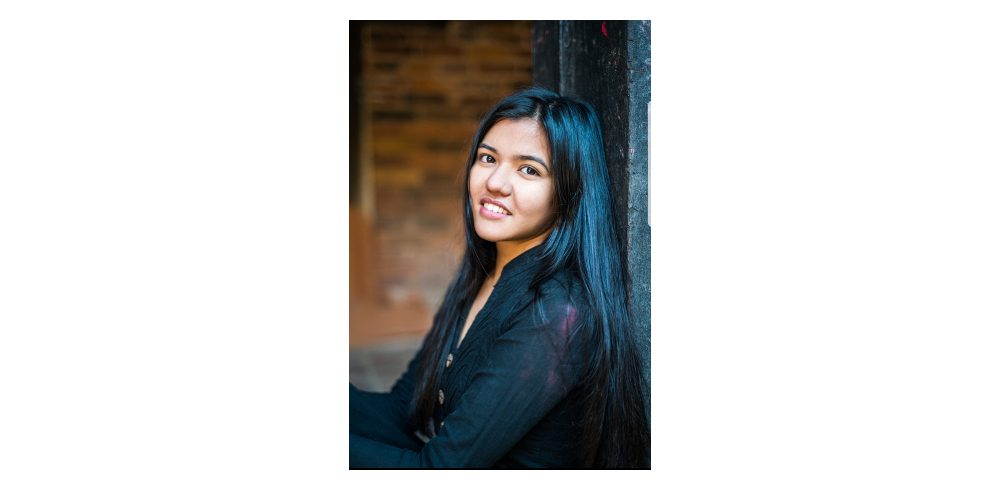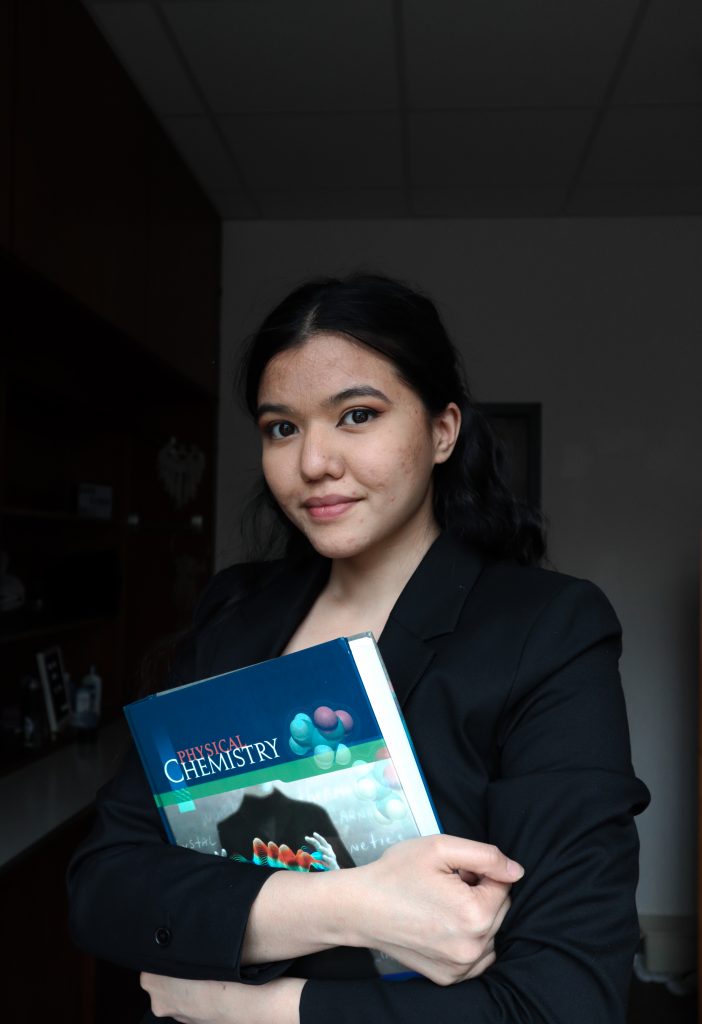Caldwell University
May 26, 2021
Yaman Thapa: Science student joining MIT summer research program

Yaman Thapa is smiling into her camera, Zoom connecting my home to her Caldwell University campus apartment. She is holding up a pink origami flower on the screen. It is tiny, intricate and beautiful. Thapa, a chemistry major and neuroscience minor, is explaining how her love of both creative arts and science is allowing her to pursue a fascinating career path.
“It’s all the same,” she says of the different avenues of study available to university students. “It’s all the study of the world. When we create these separations between disciplines, I think that limits us. There is math in aesthetics. There’s science in the arts. It’s all just knowledge to me. I feel like everything’s connected.”

She looks at the flower with a smile.
“This is art,” she says. “But there is a formula to create this.”
It is this creative mindset that has set Thapa, a junior, on the road to success at Caldwell University and sparked her interest in studying the human brain.
She was accepted into the highly competitive Bernard S. and Sophie G. Gould MIT Summer Research Program in Biology. The 10-week, research-intensive training program is offered to advanced science majors who have an interest in a research career. The program is extremely difficult to enter, and Thapa says it is even more competitive for international students, making her accomplishment all the more impressive.
At MIT, she will work alongside a professor who uses chemistry and biophysics to map the brain. Through this project, Thapa will expand her résumé and gain valuable lab experience. The MIT program offers the opportunity to work in a fast-paced environment in state-of-the-art research facilities. Over 85% of participants have enrolled in highly ranked graduate programs after the experience.
Long term, one of Thapa’s professional aspirations is to communicate her neuroscience findings to everyone, not just fellow scientists. Working with a variety of skilled faculty as well as students at MIT should give her an opportunity to sharpen her communication skills, as she will be asked to give a presentation on her research and submit a report summary at the conclusion of the program.
“One of my interests is to communicate to the general population,” she says. “My work is not going to be of any value if I just limit it to scientific journals.”
It is no surprise that Thapa has embraced this approachable mindset when it comes to her research. An international student from Kathmandu, Nepal, Thapa is proud that people in her homeland are known for their warmth and compassion. She discovered the same spirit on Caldwell’s campus.
When Thapa arrived at Caldwell, she was understandably disoriented. She was experiencing jet lag and the shock of arriving in a new country. On her first day on campus, a woman approached her and asked if she was an international student. When Thapa said she was, the woman welcomed her to Caldwell, told her the university was very happy to have her and offered her a hug. The woman turned out to be one of Caldwell’s vice presidents, and Thapa knew from that very first day that she had arrived in a place with good people who would provide her with a much-needed community. The three years that followed, including the season of COVID, have confirmed that conviction.
Like several international students, during the lockdown last year, Thapa was unable to travel home. It was an uncertain time. Thapa says a lot of students found banks back home were closed and many people unemployed, so it was difficult to receive money from overseas. The university stepped in to make certain that the students had food for all their meals, and the Cougar Pantry was set up outside the cafeteria. Counseling and residence life staff were also available whenever needed to ensure students felt connected and emotionally cared for. Thapa was able to continue her work with the Academic Affairs Department, creating a virtual orientation package for incoming freshmen.
In spite of COVID, Thapa has managed to keep her many connections and commitments on campus. She has also found time to pursue another passion: She is a writer and has recently completed a children’s book about a Tibetan boy who lives in the mountains and is adopted by a yeti. A skilled communicator with a winning personality, Thapa plans to bring her many interests together in her future work as a scientist. As she works to complete her degree, she is looking toward graduate school and continuing her work in neuroscience.
“We are so different as human beings,” she says, “and I account so much of that to our brain, to our memories and how we perceive the world.”
With her wide range of interests and accomplishments, Thapa’s future is bright. And, of course, she credits her success to the mind and its unlimited possibilities.
“I would emphasize that you might have a lot of talents,” she says, “but what makes you successful is hard work. Things are not going to happen. We need to make them happen. With a growth mindset, we can achieve anything.”
– Nicole Burrell ’09





